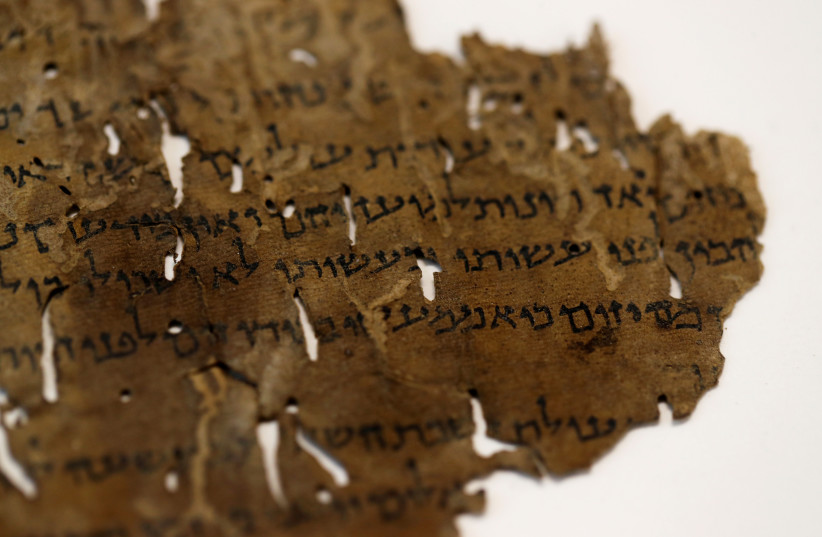After stops in London, Tel Aviv and other locales, the world’s oldest nearly complete Hebrew Bible will be on view in New York City beginning on Sunday.
Known as the Codex Sassoon, the book — which was written by a single Jewish scribe on 400 pages of parchment about 1,100 years ago — will be on view at Sotheby’s auction house (1334 York Ave.) by appointment through Tuesday, May 16. The following day, it will be sold at auction and is estimated to fetch between $30 million to $50 million — possibly making it the most expensive book or document ever sold.
“Codex Sassoon has long held a revered and fabled place in the pantheon of surviving historic documents and is undeniably one of the most important and singular texts in human history,” Richard Austin, Sotheby’s global head of books and manuscripts, said. “With such eminence, the Codex has an incomparable presence and gravitas that can only be borne from more than 1,000 years of history.”
The Codex Sassoon is named after the book collector David Solomon Sassoon — a member of the influential and Jewish Sassoon dynasty — who acquired it in 1929 when it resurfaced after 600 years. Sassoon paid 350 pounds sterling, the equivalent of about $28,000 today.
Sassoon added his bookplate to the binding’s inside cover, extending a centuries-long string of inscriptions detailing the book’s Jewish ownership, much of it throughout what is present-day Syria. The record does not show what happened between when the synagogue where it had been housed was destroyed and Sassoon’s acquisition.
Codex Sassoon’s most recent owner is Jacqui Safra, part of the storied Jewish banking family, who paid for carbon dating that put its age at about 1,100 years old. Only the Dead Sea Scrolls and some early medieval fragmentary texts are older, Yosef Ofer, a professor of Bible studies at Israel’s Bar Ilan University, told the Associated Press.

Rare opportunity to view the codex
The book was briefly displayed at the British Museum in 1982; its viewing at Sotheby’s New York is a rare opportunity for the public to see the ancient book in person.
Codex Sassoon, according to a Sotheby’s press release, provides “critical insight into the development and spread of Abrahamic religions as well as the broader transition from oral to literary traditions, its centuries of annotations and inscriptions bear witness to the history of the Levant in the Middle Ages.” It contains all 24 books of the Hebrew Bible and is missing only 12 leaves. (The earliest entirely complete Hebrew Bible is the Leningrad Codex, which dates to about 1008 CE, a century after the Codex Sassoon.)
“In Codex Sassoon, a monumental transformation in the history of the Hebrew Bible is revealed,” said Sharon Mintz, Sotheby’s senior Judaica specialist for books and manuscripts. “The biblical text in book format marks a critical turning point in how we perceive the history of the Divine word across thousands of years and is a transformative witness to how the Hebrew Bible has influenced the pillars of civilization — art, culture, law, politics — for centuries.”
